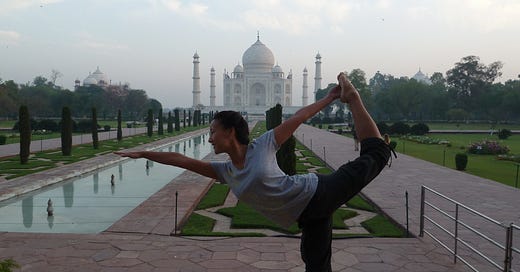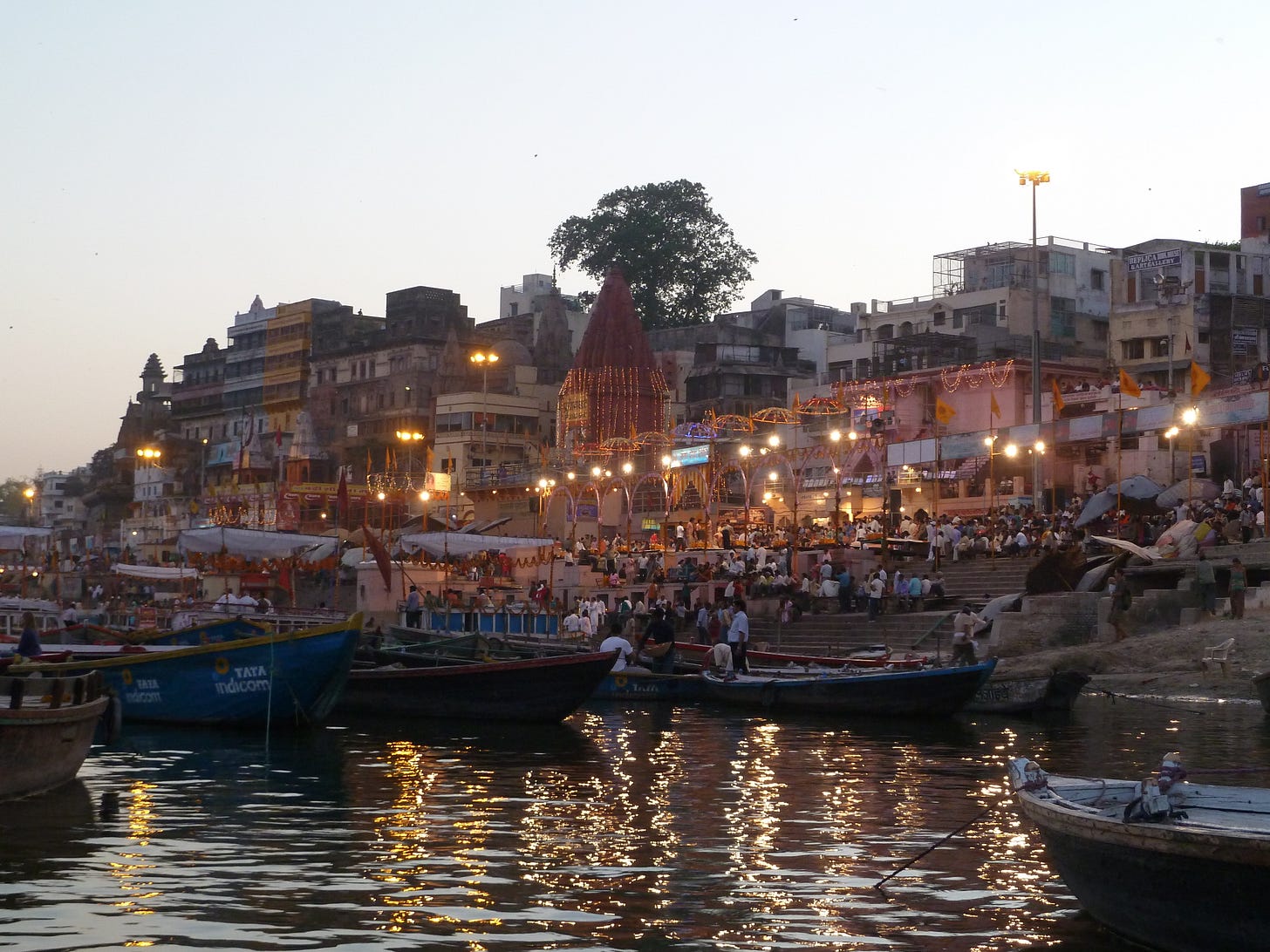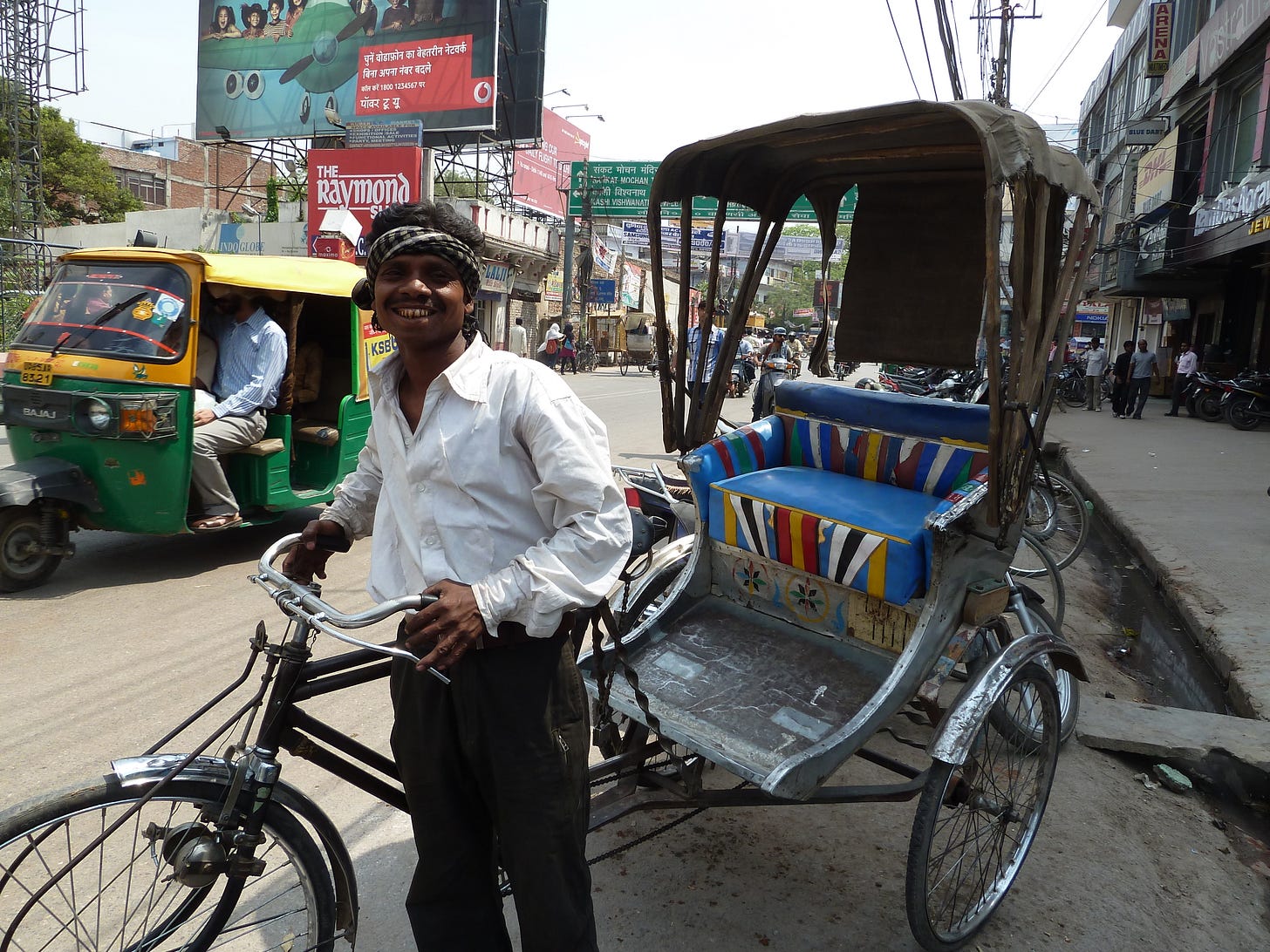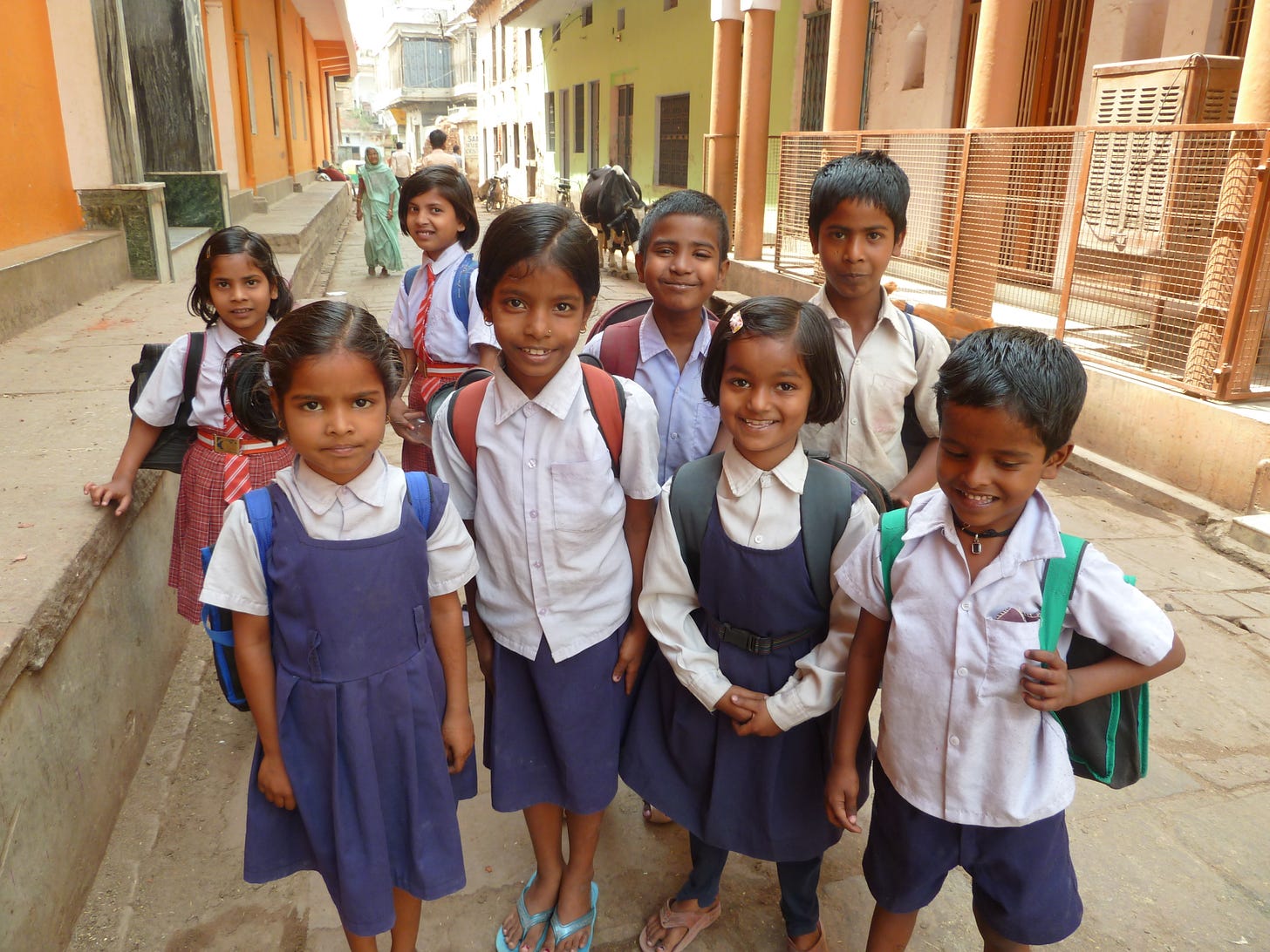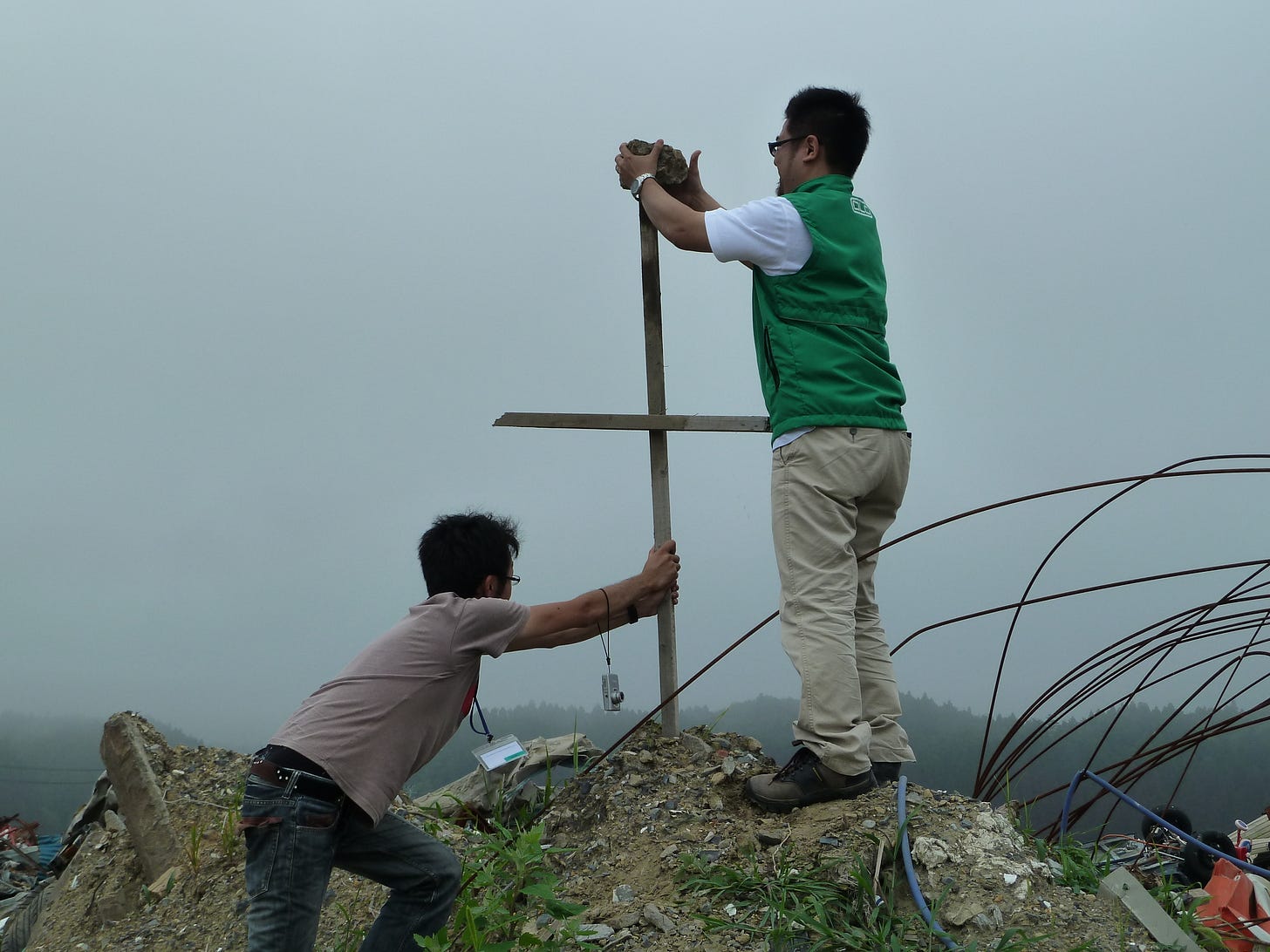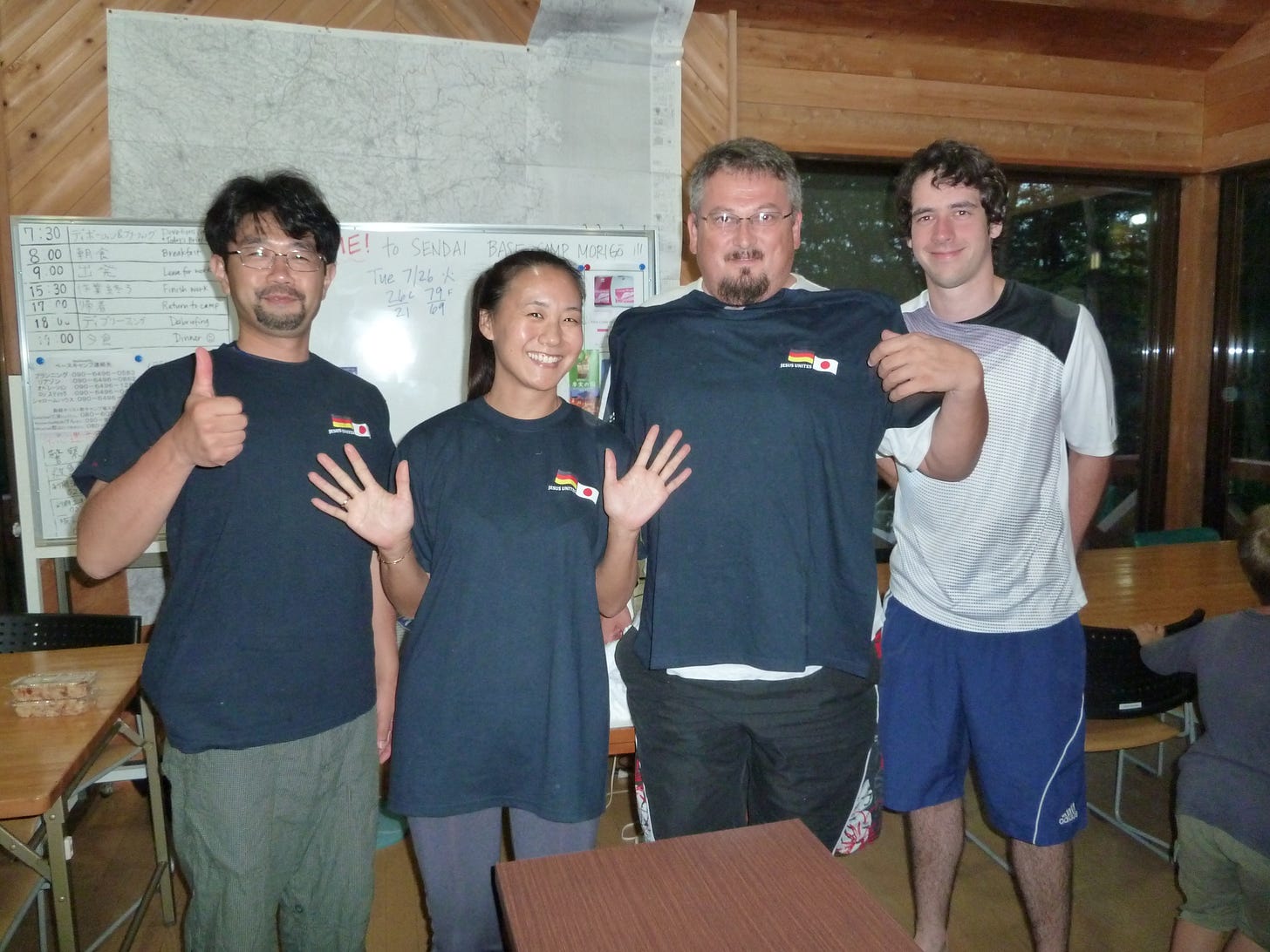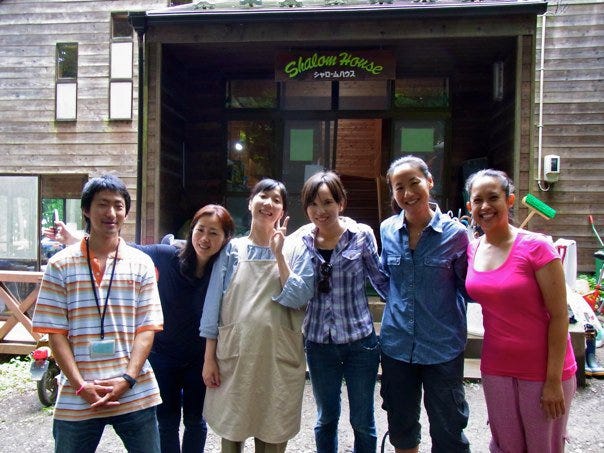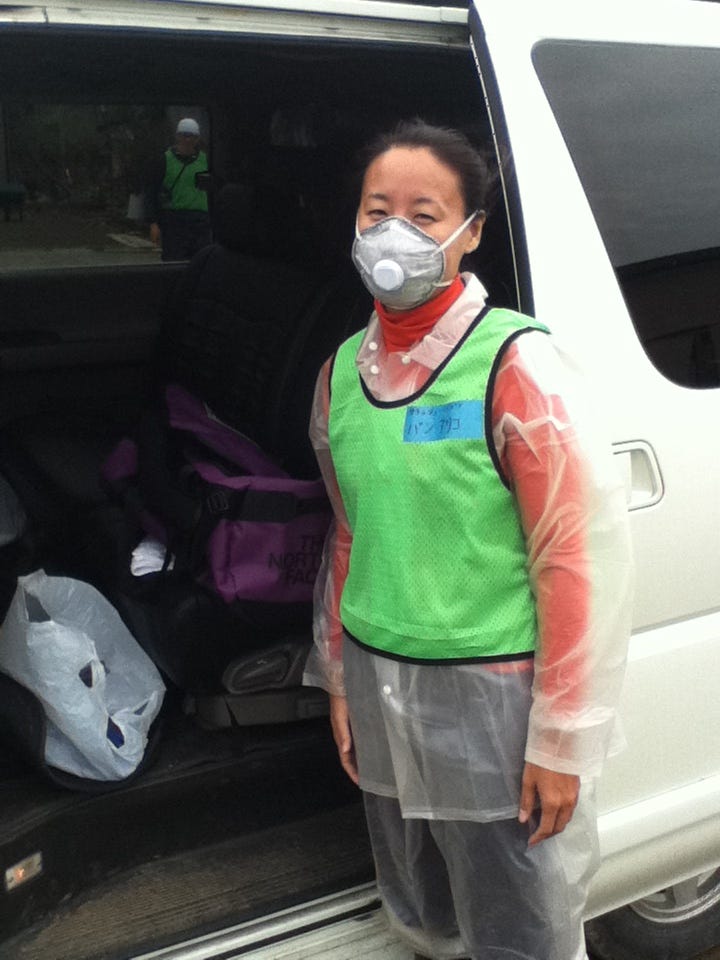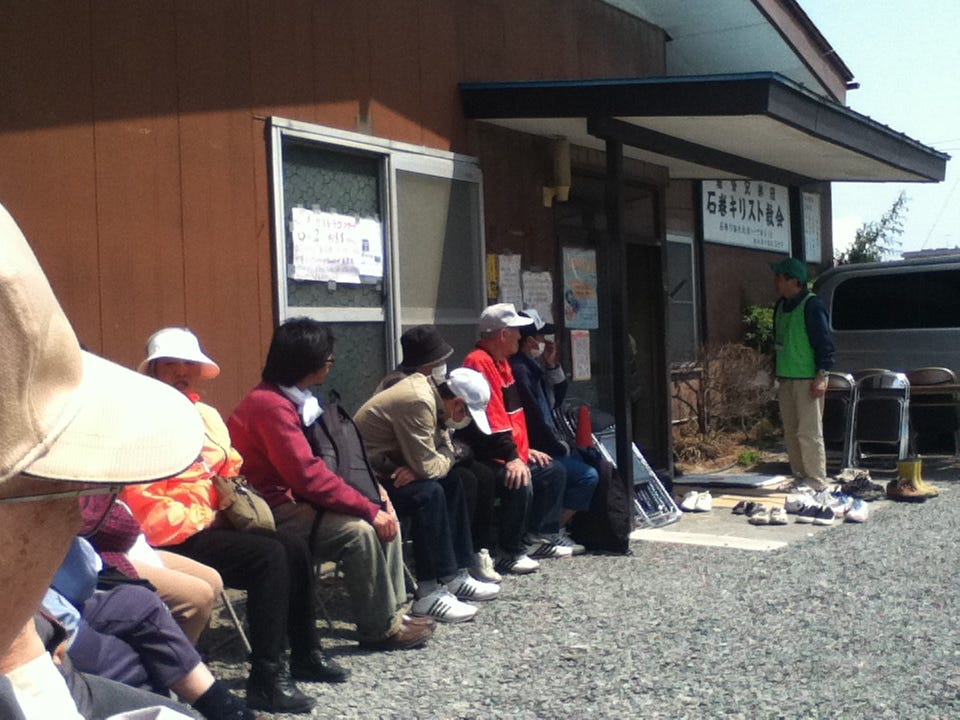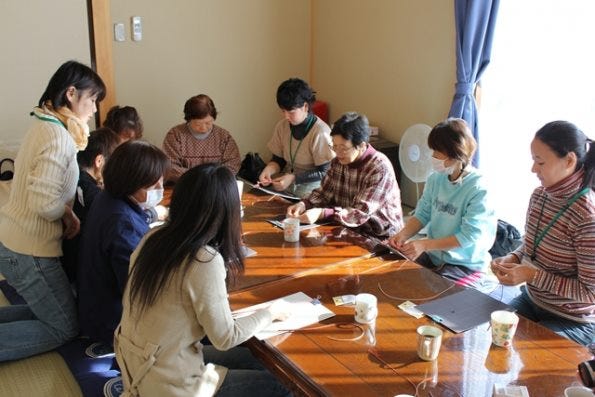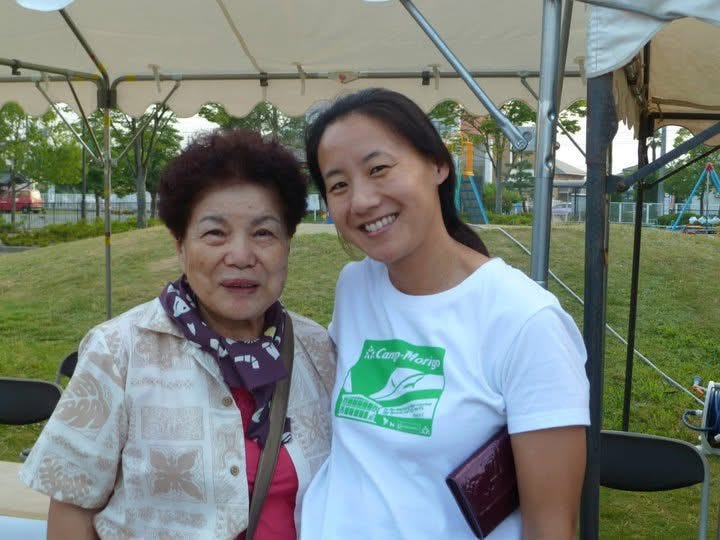In this post, I’ll tell you about the job I had right before going into real estate. It might be helpful to read Part 1, here, about how I left my job at Maui Divers Jewelry.
After my last day at Maui Divers Jewelry was set for March 11, 2011, I booked a bucket list trip to India to start March 14. Then the earthquake and tsunami hit northern Japan on March 11 and God revealed His next job for me. While watching the first chaotic days unfold, I considered cancelling the India trip. Relief efforts were just starting to mobilize but I didn’t have a clear direction specifically how or where God wanted me to help in Japan. So I went to India with Japan heavy on my heart. In God’s perfect plan and way, the trip to India taught and prepared me for Japan.
I still consider the two weeks I spent in India the most foreign and fascinating place I’ve ever visited. I took a typical weeklong bus tour of The Golden Triangle: Delhi, Jaipur, and Agra—home of the Taj Mahal. But the week in the holy city of Varanasi is the India that stays in my heart and memory. I was alone, so I had many opportunities to meet and talk with locals.
I stayed at a clean but bare hotel with zero modern conveniences. Many days, I wandered down to the banks of the Ganges River to witness pilgrims dunk, bathe, do laundry, drink (!), and cremate their loved ones. I was in awe of their religious devotion and fervor.
A taxi driver taught me about the caste system: He had become estranged from his family after marrying out of his caste. I could see his reflection in the rearview mirror: he beamed with happiness as he told me of his love for his wife. His parents began warming up to his wife after they had children.
Another Varanasi adventure was thanks to the hard work of my gregarious pedicab driver, Sunja-Kumar. I hopped in and asked him to help me find an electric converter for my laptop. He gave animated commentary as he pedaled me to several stores until we finally found the right item. Our grand tour took several hours—partly because his bicycle got a flat tire. I waited and watched it get repaired, on the spot!
I walked and saw cows wandering freely on the dirt streets. I saw angelic children break out in smiles when I motioned if I could take their photo. Also, for the first time in my life, I saw rampant poverty.
I was raised in one of the most affluent suburbs of Portland, Oregon and rarely witnessed poor areas or homeless people. In India, there was no escaping the eyes of broken souls without a home or hope. It was a precursor to what I would see in northern Japan.
The two weeks in India changed me. I had returned to Christianity just a few months prior and was still wobbly in my faith. But in India, God opened my eyes and heart and started to impart His vision and compassion for the survivors in Japan.
Total devastation
All during my India trip I tucked into internet cafes to read news of the recovery efforts in Japan. After returning to Honolulu, family friends, Eiji and Emi Osato, connected me with a church just north of Sendai called Oasis Chapel. The church had a Christian retreat center which had been converted into a staging camp for disaster volunteers. The location of my next job was set—Camp Morigo in the small town of Rifu, Miyagi Prefecture.
I decided to take a quick trip to visit the Osato’s in Thailand before heading to Japan. I think it was the only time in my life I booked a one-way ticket. I locked the door to my studio in downtown Honolulu with no idea when I would return.
Reporting for work, for the Lord
God’s itinerary for me to go to Thailand before Japan was another blessed gift of preparation: the Osato’s, after decades as Japanese missionaries in Chiang Mai, gave me a crash course on mission work. They were also close friends with the Oasis Chapel church where I was headed.
I arrived to Japan and first visited relatives in Tokyo and Nagoya. The tsunami hadn’t affected them but they had experienced the earthquake, aftershocks, and power outages. The lights in the train stations and other public areas were dimmed to conserve electricity. Japan felt dark.
I arrived to Sendai on May 10, 2011, two months after the disaster. The first survivors I met were Oasis Chapel’s Pastor Makito Matsuda and his wife Yuki. They told me of their intense emotional and physical trauma: the sheer terror and existential panic during the earthquake; the suffering from the loss of power and running water for many weeks in freezing weather; the destruction of homes, buildings, train lines, and roads.
Thankfully, they and most of their church members had not lost their homes. The mountain location of Camp Morigo was another blessing: the tsunami had swallowed up the surrounding areas, but the camp, on higher and holy ground, had been spared from the tsunami. The church had welcomed a Christian disaster relief organization called CRASH Japan (quite the unfortunate acronym: Christian Relief Assistance Support Hope) to use it as a volunteer base camp.
I joined the intertwined Oasis and CRASH disaster relief teams and the long-term leadership team who had left their jobs to work full-time for the Lord. We were joined by a revolving stream of volunteers who stayed at Camp Morigo for a weekend, a week, or as long as they could take off to serve God. We hosted an American team from Saddleback Church, German teams from the Liebenzell Seminary, and hundreds of other faithful Christians from all over Japan and the world.
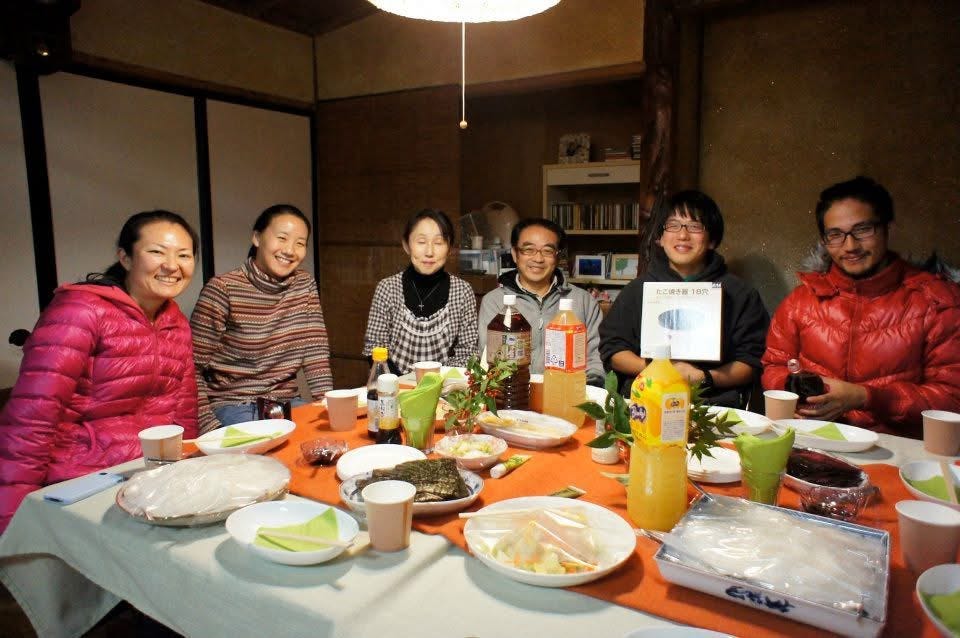
Six days a week we ate breakfast, had worship and prayer, received our assignments for the day, and headed out to the disaster area. After a long day’s work, we returned to Camp Morigo for debriefing, a hot bath, dinner, and sleep. On Sundays, we attended Oasis Chapel, did laundry, and rested in the natural beauty around the camp. A favorite treat was to explore various bathhouses within driving distance.
Everything was communal: 8 bunks per room, shared toilets, bath house, and meals. As an introvert, it was stressful not to have time alone. I was (am) a very selfish person and struggle with patience and selflessness. At Camp Morigo, I had to humble myself, learn to give grace, and play nicely with others. I found myself constantly asking for forgiveness.
Thankfully, God had placed me in the midst of many loving and kind Christians. He knew it would be the perfect place for me to rebuild my faith. Many of my most precious memories of northern Japan are the rewarding lessons of doing life in community at Camp Morigo.
The progression of the relief work
Seeing the poverty in India and Thailand helped prepare me for the relief work, but there was one major difference: The poor in India were born into poverty; the tsunami survivors lost everything in one horrific day. They went from a comfortable lifestyle to having nothing but a few square meters of space in a gym; from eating whatever they desired, to having to accept handouts. The survivors had to process the immense shock that their lives had taken a devastating turn.
My first work assignment was to clean out some of the homes that were still standing but uninhabitable. Our teams suited up with protective gear, gloves, and masks to protect us from the toxic tsunami sludge that had swept through the homes and filled every crevice. My heart broke seeing the abandoned homes covered in muck. It was good for me to see the extent of the devastation before meeting survivors in the shelters.
Even months after March 11, the needs for food, shelter, and clothing were ongoing. The earthquake and tsunami happened while the weather was still bitterly cold; as the seasons changed, so did the clothing needs. (If I may share something I learned in Japan: unless specifically requested, it’s not helpful to donate used clothing after disasters. At the camp we had piles of used clothes that could not be given to survivors and eventually had to be discarded.) New clothes, however, could be received by survivors with dignity. Much of our initial outreach was to deliver clothes and toiletries.
Later, groups of temporary mobile homes were constructed so each family could have a little privacy. Our teams would visit these “villages” with supplies, tea, music, and entertainment. If we learned a child had a birthday coming up, we would bring a special gift and cake. As spring and summer came, we visited schools and communities and served shaved ice.
We teamed up with local churches: in Ishinomaki we set up a “store” full of clothes and household necessities. Survivors were welcome to “shop” for whatever they needed—it was a wonderful way to give survivors autonomy and the power to choose. We served tea and made conversation with those waiting in line.
Still later, since survivors had lost their former livelihoods, we helped them create new income streams. We established a connection with a group of women in Minami Sanriku. Over tea together we learned to weave intricate leather bracelets which were later sold in Japanese department stores. We also made friendships with a few small-scale farmers and helped them slowly get back on their feet.
Deeper connections
We always tried to create opportunities for conversation over a meal or tea. Wherever we went, every survivor needed and wanted us to listen—just listen. They wanted to tell us where they were when the earthquake hit; how they escaped the tsunami; how they lost their home and everything inside; and which friends and family members they lost.
The telling and retelling were necessary and cathartic stages for their emotional healing. The focus of our support and work became tending to these emotional needs—and hopefully, maybe years later, their spiritual needs.
With the leather bracelet group, a team from Oasis Chapel visited weekly bringing supplies and conversation to the same group of women. Week after week, as strips of leather were woven into bracelets, friendships and trust were also being woven together. We didn’t overtly talk about Jesus, but it was His love which energized us.
A gift from the survivors
As I met survivors who had come so close to losing their lives, I heard their reflections and realizations about what is truly important in life. One survivor after another told me it’s relationships with family, friends, and co-workers that give life meaning—not work, money, status, or things. One man cried as he told me he had urged a friend to escape the tsunami with him on foot, only to watch the friend perish because he insisted on driving out in order to save his precious car.
Just a year before, when I turned 40, I had questioned the meaning and purpose of my life. I had been self-absorbed with the corporate rat race and frivolous material things—which the survivors taught me are not important in the end. The survivors’ honest reflections were precious gifts to me. By the end of my time in Japan, I understood what my priorities in life should be going forward.
Cleaning toilets for God
God’s job for me in Japan lasted seven months, from May through November 2011. One of my last assignments at Camp Morigo was to clean the toilets in the communal cabin where we volunteers lived. For much of my stay, a retired Japanese woman with a beautiful heart had volunteered to keep the camp clean. But after her time of service, the rest of us took turns cleaning.
The toilets were a much-needed lesson to take down my pride. As I began to scrub, I thought, “I used to be an important executive! I used to oversee hundreds of salespeople!” As I continued to scrub, I began to think of the love and sacrifices of my campmates and the volunteers. Just as He did in India, God humbled and softened my heart. As I looked over the row of sparkling toilets, I felt joy and understanding:
What gives life meaning and purpose is serving God and doing whatever work He assigns. If I work wholeheartedly and follow Him, He will bring fulfillment to even the most menial work.
“Whatever your hand finds to do, do it with all your might.” Ecclesiastes 9:10 (NIV)
“Whatever you do [whatever your task may be], work from the soul [that is, put in your very best effort], as [something done] for the Lord and not for men.” Colossians 3:23 (AMP)
I returned to Honolulu in December 2011, determined to find a new job where I could help others in a meaningful way. As with the leather bracelet group, I wanted relationships that grew deeper over time. This is what eventually attracted me to real estate.
In real estate I still clean toilets! I can do it gladly, for the good of my listings and clients and to the glory of God!
In Part 3, coming in May, I’ll talk about my first 12 years in real estate, from 2012 to 2024.

